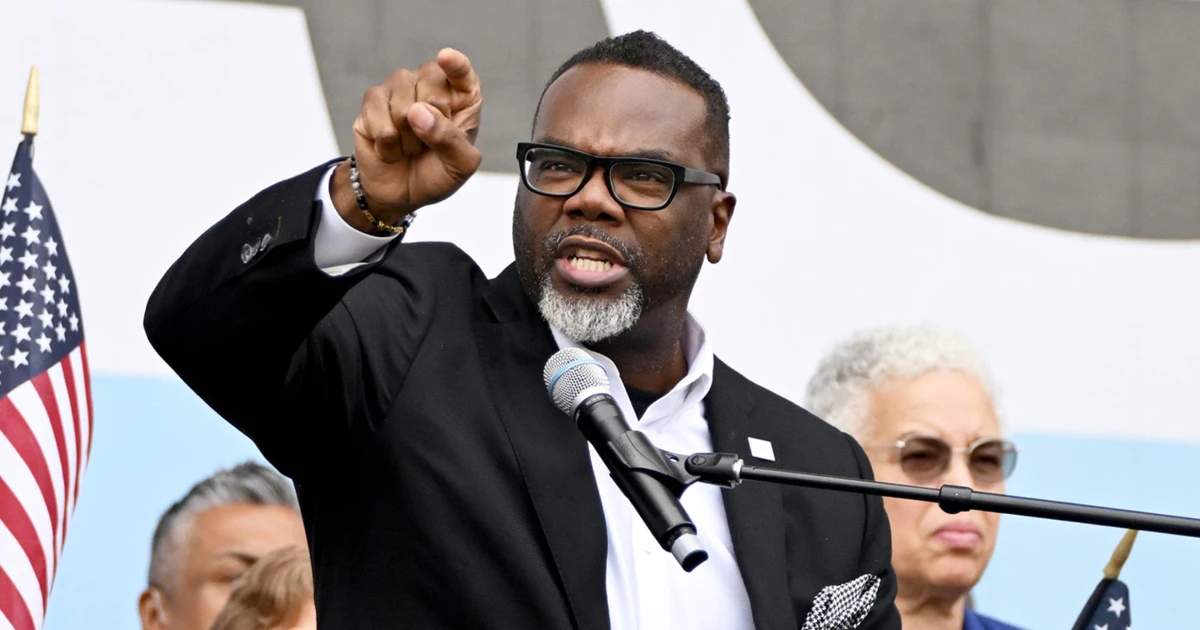Copyright Kalispell Inter Lake

Twenty-year-old college student Finley Warden said he attended an October educator conference organized by the Montana Federation of Public Employees, the state’s largest union, as “a concerned Montanan.” “I truly care about our education system, its integrity, and I care about the professional development training that is being taught to our teachers,” Warden, who said he grew up attending public schools in Missoula, told Montana Free Press on Oct 28. “Because when I went through the Montana public school system, I really saw firsthand how leftism and leftist indoctrination has been pushed in the classroom, and teachers’ unions, specifically this MFPE conference, has been a source of that indoctrination in Montana.” Warden — who lives in Bozeman and recently began online studies at Liberty University, a private evangelical school based in Virginia — recorded many of the events he attended at the conference in Missoula. In an Oct. 17 post on X, he wrote that he “went undercover” at the conference. “You won’t believe what I caught them saying when leftist teachers and activists think no one is listening,” he wrote. One clip recorded a librarian defending a book featuring a romance between two teenage boys. Another clip documents a teacher encouraging class discussion about censorship in light of the recent removal of award-winning artist Sally Mann’s photographs at a museum in Texas. Conservative newsletters, radio shows and social media accounts, including Libs of TikTok, an account with millions of followers, promptly reshared Warden’s audio clips and posts. Warden says he also shared the clips directly with Montana’s Office of Public Instruction (OPI), which oversees public K-12 school districts. About nine hours after Warden shared the first audio clip from the conference on X, Superintendent of Public Instruction Susie Hedalen, the state’s top education official, sent a letter to school district administrators reminding them to comply with state and federal laws “related to DEI and gender identity instruction.” The letter referenced “potential violations of state and federal law in public schools,” but when pressed by MTFP for violations by schools or at the MFPE conference, OPI spokesperson McKenna Gregg did not offer any. On Oct. 27, Hedalen, a Republican, and state Senate President Matt Regier, R-Kalispell, sent a joint press release citing the viral recordings and co-announcing their intention to support legislation in 2027 that could change how educators in Montana access professional development opportunities. The proposed legislation would “end the practice of Montana teachers receiving educational credit for their participation in conferences promoting extreme leftist ideology and classroom indoctrination,” according to the press release. Amanda Curtis, the president of the Montana Federation of Public Employees, said the audio was presented misleadingly, that the librarian defending the book did not violate any procedures and that viral recordings could have “terrible” long-term consequences. “We know that Montanans agree with us, and we expect that the superintendent would agree with us, that our focus should be on protecting and improving public schools for every student and not these fabricated social media firestorms,” she said in an Oct. 24 phone interview. She said that “this chaos” could worsen the already challenging matter of teacher recruitment and retention. MTFP talked to Warden, conference attendees and Hedalen’s spokesperson, and reviewed several audio recordings to compile this account of what transpired and the potential implications for educators across the state if such a bill should advance. On Oct. 16-17, about 800 educators from across the state gathered at Big Sky High School in Missoula for the 2025 MFPE Educator Conference. The Montana Federation of Public Employees, a union that includes school teachers and other public employees, has been offering the conference for years. Teachers organizations work with MFPE to plan conference sessions according to their needs, and MFPE provides the space and logistical support. This year, Curtis said, 254 speakers and presenters provided professional development instruction on topics including improving student engagement, lowering the risk of adolescent suicide, and Montana’s Constitution. MFPE members’ dues pay for the event, which is offset by conference registration fees, and participation typically earns professional development credits, which teachers need to maintain their licensure. Educators are not required to attend the conference, and none of the sessions are mandatory for attendees. “We’re so proud of this conference,” Curtis said, adding that OPI, the office Hedalen oversees, has been invited to participate in the conference planning process. “Our office took their unanswered emails and lack of attendance in any planning meeting to mean they had no concerns with the conference,” Curtis wrote in an Oct. 30 email. “The list of courses has been available for review since May of 2025. OPI could have just walked over one block to our office, picked up a phone, or sent an email asking us to send a list of courses before they were ever approved. We also had multiple sessions and two booths from OPI.” Regier and Hedalen in their release allege “MFPE failed to publicly put their conference agenda and sessions online.” The incident marks the latest skirmish in a long history of conflict between the state’s largest union and Montana’s GOP. This October marked the second consecutive year that Warden, a self-described “America First” activist, said he attended the conference. He told MTFP that his experiences with “leftist instruction” in Montana public schools motivated him to attend the conferences and that he was able to register although he is not an educator. “I was really one of the only openly conservative students in my high school,” he said of his time in the Missoula County Public School system. “And so whenever there was political discussion in the classroom it would often be kind of me versus the rest of the class and the teacher. And in those moments, I was just really just sharing the opposite side, just the mainstream conservative opinion, and that’s something that was never present in the classroom.” While Montana’s four electoral votes went to President Donald Trump and voters elected an entirely Republican congressional delegation in the 2024 election, Missoula County voters largely supported Democratic candidates. Last February, Warden referenced his experience attending the 2024 educator conference when he testified at a committee hearing in support of a bill that would have made it optional, rather than mandatory, for school boards to close schools for professional development meetings, like MFPE’s educator conference. Kim Popham, former high school teacher and MFPE’s director of policy and research, at the same committee hearing told lawmakers the conference “is invaluable to teachers and, in turn, their students.” “Not only do the teachers benefit by learning and earning their renewal units, but the local economy benefits when thousands of people travel to the conference and spend money,” she said. “This conference is an important opportunity for teachers to collaborate with others and learn in order to better help our public school students in Montana.” House Bill 557 died on a 24-26 vote in the GOP-majority state Senate last April. In their joint press release referencing Warden’s audio, Regier and Hedalen said the new legislation would be modeled after it. Citing Warden’s recordings, Hedalen and Regier’s press release describes an incident at the conference in which a librarian talks about “a sexually explicit book” that “includes multiple passages of explicit softcore pornography.” According to the full recording, provided by Warden, an unidentified educator does share what she called a “victory story” about restoring a book to the shelves of a middle school library. One area of confusion, however, seems to be the question of which book the librarian was referring to. “About four years ago, I had a book in my library that my colleague removed without telling me,” she said, according to the recording Warden shared on X. MTFP verified that the librarian said this at an Oct. 16 “Advocacy and Law for Librarians” session. “And my colleague, when she made this decision, was not truthful with our administrator that it was going to result in the book being removed from our library. I did not find out about it until after it was already gone. And this was a situation where this librarian struggled to maintain objectivity. Her heart was in the right place, 100% her heart was in the right place, but she was leading with her heart and not with her head, and it caused a book to eventually be censored from my library.” The educator went on to say she ordered the book this year after it was taken off the shelves and it’s on its way. “Now my eighth-graders will be able to pick it up on the shelf,” she said in the recording. Warden wrote on X that after the presentation, the librarian told him she was referring to the “Heartstopper” series. The graphic novel series follows a romance between two British teenage boys and their experiences with friendship and bullying. Since its debut in 2019, the series has sold millions of copies, been adapted into a hit Netflix show, and won numerous awards, including the Goodreads Choice Award. The series has also sparked debate. Conservative politicians and parents in Florida, Oregon, Mississippi and Iowa also have pushed to restrict or remove the books from school libraries. Curtis said the librarian told her she was referring to volume one in the series, which chronicles the boys’ friendship as it gradually develops into a romantic relationship. There are several illustrations of the two boys kissing on the lips in volume one, and no nudity or sex acts are featured. But Warden shared the audio clip alongside an image of volume five of the series. Volume five follows the couple as they advance their physical relationship and decide to have sex. Warden’s Oct. 20 post of the clip characterized what was said as follows: “A middle school librarian brags about adding a book with sexual content to her school library. The book was once removed from the library but she describes how she brought it back.” Later that day, Libs of TikTok, an account with 4.5 million followers, shared the post with the description: “Undercover audio reveals Montana teacher boasting about making sure students have access to p**n books. This must be investigated immediately. These teachers think they can get away with secretly grooming your kids.” MFPE’s Curtis said she has spoken with the librarian who is heard in the clip and determined that the quote was presented out of context to misrepresent the librarian’s actions. “This librarian’s story is actually a great example of how educators and school communities implement policies districts adopt after the Legislature passes laws,” she wrote in an Oct. 30 email. “The book wasn’t removed because it was challenged through the proper channels, it was just taken off the shelf. Then it took several years of making sure the book cleared the selection process to bring it back.” MFPE said the librarian in the recording works for Missoula County Public Schools. MCPS Communications Specialist Jennifer Savage said there have been no formal or informal challenges to “Heartstopper” titles within the district. Some libraries in the district have volumes one through four of the “Heartstopper” series, and others have all five books, she said. Montana law requires each school district’s board of trustees to set school library collection and reconsideration policies. In Missoula County Public Schools, library books are selected to “provide materials which support the curriculum and learning,” “to provide equitable access to a variety of information materials,” and “to provide materials which reflect many sides of issues, beliefs and ideas,” among other objectives, according to district policies. The district also has processes for challenging educational materials, which include discussing concerns with the person responsible for the material (a teacher or librarian) and submitting a formal request for reconsideration. Kirk Vriesman, executive director of the Montana Library Association, said school librarians in Montana “are experts in collection development standards and selection criteria.” “Library collections matter because they provide students with access to research resources, reading materials, and learning opportunities that support their academic growth,” he wrote in an Oct. 30 email to MTFP. “They are an important part of Montana’s educational systems.” OPI spokesperson McKenna Gregg said Hedalen’s support for the new legislation “is not based solely on the recently released audio recordings.” When asked in an Oct. 27 interview on Montana Public Radio if schools are teaching “things that run afoul of state or federal law,” Hedalen said, “I do not have concrete examples.” Another example offered in the news release sent by Hedalen and Regier cites audio from a “‘DEI in Art’ panel decrying the removal of a photography display of nude children.” MTFP was unable to identify the speaker in the clip or obtain the full audio to clarify the context. In the clip shared by Warden, a conference presenter spoke about an incident involving award-winning photographer Sally Mann’s work. In January, after a conservative Christian advocacy group accused a museum in Texas of displaying “child pornography,” police seized four of Mann’s photographs from the Modern Art Museum of Fort Worth. After national condemnation from civil liberty organizations, police returned the art. The speaker in Warden’s clip called the removal of Mann’s work “censorship” and encouraged teachers to explore the theme with students, referencing the Nazi party’s restrictions on modern art. “I think that if I were teaching K-12 right now, I would look at censorship, and I would look at the Nazi regime and what Hitler did with abstraction, right?” the conference presenter said, according to the recording. “That became inappropriate, disgusting art. I just think that it would be helpful to look at how censorship has played out in history and to have discussions with students as to whether or not it’s OK.” The third viral audio clip, referenced in the press release for draft legislation, involves a discussion of gender and sexuality. Unlike the other two clips, MTFP found that the audio was not, in fact, recorded at the recent conference. Warden shared the clip on Oct. 21, just days after the 2025 conference concluded, but he later told conservative talk radio show Montana Talks and MTFP that the audio was recorded at the 2024 conference. In the full audio, provided to MTFP by Warden, the parent of a transgender child asks presenter Anthony Brisson of the National Education Association if his organization provides guidance to school teachers and administrators on the difference between gender and sexuality. The exchange occurred during a 2024 conference session titled “LGBTQ+ State of the State.” In the clip shared by Warden, Brisson says that NEA provides several LGBTQ resources to assist educators and administrators. He also said people can find guidance by searching online for the “gender unicorn,” an educational infographic that outlines differences in gender expression, identity and sex assigned at birth, among other things. “If you Google ‘gender unicorn,’ it’s a unicorn, and it talks about the difference between gender and sexuality and what are the differences, right?” he said in the clip Warden shared. “Feelings, emotions, gender identity is your expression, right? How you identify. Versus usually sexual orientation, that is internal, right? That’s your wiring, that’s who you love.” In May, Republican Gov. Greg Gianforte signed a bill requiring parental consent for students to receive instruction on gender identity and changing guidelines around human sexuality instruction to ensure parents or guardians are notified ahead of time. In the news release announcing Regier’s legislation proposal, Hedalen wrote: “Montana parents have made it clear they want classrooms that teach, not indoctrinate. Our schools exist to educate children, not to serve as platforms for political activism or social experimentation. “When taxpayer dollars fund ‘professional development’ that celebrates sexually explicit books, defends nude images of minors as ‘art,’ and promotes gender ideology to young children, something has gone deeply wrong.” While bill language for a 2027 version won’t be available until much closer to the legislative session, Kyle Schmauch, communications director for state Senate Republicans, told MTFP that Regier and Hedalen have two concepts in mind: ending the mandatory school closures for professional development meetings, and revising the standards that define what trainings count for professional development credits “with the intent that tax dollars and state-endorsed educational credits don’t include courses promoting political ideology or activism.” “When educators take time away from the classroom, it should be to improve instruction, not to attend workshops defending explicit material or politically divisive content,” Hedalen and Regier wrote in a Nov. 1 op-ed published by the Helena Independent Record. Felicia King, a science teacher at Gallatin High School, traveled from Bozeman to Missoula to attend the conference, where she sat in on sessions about school funding and science instruction. She said if her school had not closed during those two days in October, she likely wouldn’t have been able to attend. “I think if we did not have those [pupil-instruction-related] days, there would not be an opportunity for Montana educators from around the state, from different districts to get together,” she told MTFP in an Oct. 30 phone interview. “It’s a unique opportunity that MFPE supports.” King said revoking MFPE’s ability to deliver professional development credits would also harm teachers. “It would literally make the easiest way to maintain your certification as a teacher, it would make it harder to do that,” she said. “It would put up a barrier to stay in the teaching profession, which we know is vital for our communities. And we know right now it is really hard to recruit and retain good teachers.”



